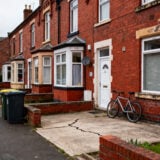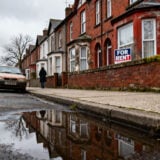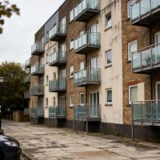An economist has added to the growing consensus that stamp duty is a regressive tax that should be abolished.
Paul Johnson, the former head of the Institute for Fiscal Studies, called it “the worst tax we have”, adding “If I were Chancellor for the day, I would abolish it”.
Instead, he said there is a “strong case” for equalising Capital Gains Tax (CGT) with income tax rates, though he warned more CGT shouldn’t be charged just because of rising inflation.
Calling for a tax-free allowance to enable a “normal return”, he suggested this should be set at the rate of inflation plus 2-3%, with CGT then paid on any further returns.
Johnson was speaking on the National Residential Landlords Association’s (NRLA) podcast called “listen up landlords”.
Capital Gains and Income Tax as they stand
As it stands, gains from residential property are subject to a CGT rate of 24% for higher or additional rate taxpayers, or 18% for basic rate taxpayers.
In terms of income tax, earnings between £12,571 and £50,270 are taxed at the basic rate of 20%. Meanwhile earnings from £50,271 to £125,140 are subject to the higher rate of 40%. Above that the tax rate is 45%.
Stamp duty in the firing line

Chancellor Rachel Reeves has been reportedly thinking of scrapping or changing stamp duty in the Autumn Budget on November 26.
Ideas floated include replacing it with a sellers’ tax and switching it to an annual tax on homes worth more than £500,000, as well as altering council tax.
Kemi Badenoch, leader of the Conservative Party, has also pledged to abolish stamp duty if the party was to win the next general election.
Tax rises could cause economic damage
Potential tax hikes on the private rented sector are “economically damaging” and based on a lack of understanding about investors, Johnson added.
He said: “I think you need to think very carefully about how to tax housing and how to tax rental housing, and the first myth to bust is the idea… that somehow landlords are under-taxed relative to owner-occupiers, which is complete nonsense.
“If you make it more expensive to be a landlord, then there will be some combination of fewer landlords and higher rent.”
Instead, Johnson called for the government to unveil a long-term plan for how it plans to tax housing and property, and maintain those rules.
He added that that would end the “uncertainty and the sense that each year there’s a little bit of a budget deficit we need to look [to the private rented sector] for grabbing money.”
Johnson was speaking to NRLA chief executive, Ben Beadle, and podcast co-host Richard Blanco.

Beadle said: “Ahead of the Budget the government must heed Paul Johnson’s sage advice. Too often the way rental property is taxed is based on nothing more than topping up the coffers from one year to the next. Such knee jerk and short-term thinking is no way to run an economy.
“What is needed is a consistent tax strategy that gives responsible landlords the confidence to invest in the decent long-term homes for rent that so many people desperately need.”







